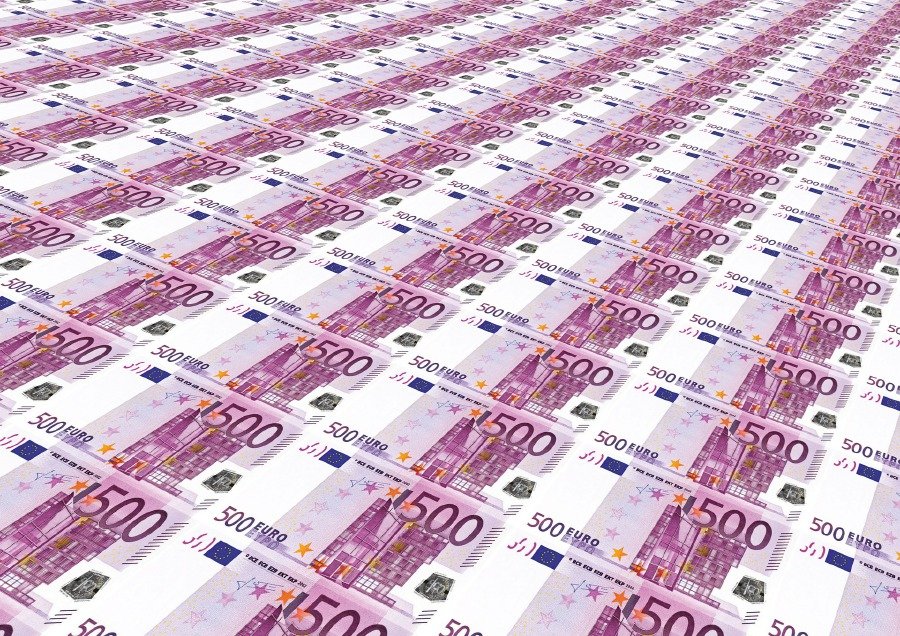Sources in Portugal strangely quiet…
The Venezuelan government has just announced the release of $1.5 billion (€1.366 billion) that was held in Portugal in accounts of Venezuelan institutions and companies in Novo Banco.
“The Bolivarian Government (of Venezuela) wins lawsuit and recovers its assets in Portugal. One thousand five hundred million dollars have been unblocked from Novo Banco”, tweeted Venezuelan minister of communication and information, Freddy Ñañez, yesterday.
The minister accompanied the message with the publication of images, in Spanish, of the decision by the Central Civil Court of Lisbon.
But here, confirmation has been ‘non-existent’: beyond media reports of Freddy Ñañez’s statement.
According to documentation presented by the minister, the funds were held in accounts of several Venezuelan state-owned companies, including the Bank for Economic and Social Development (BANDES) and State-owned Petróleos de Venezuela SA (PDVSA), as well as several subsidiaries.
The court, according to the same source, ordered the return of funds to Banco Bandes Uruguay SA, Petrocedeño, Pdvsa Services BV, Petromonágas, Petropiar and Bariven.
The Venezuelan opposition has already reacted to the announcement, insisting that Venezuela will not have access to these funds due to international sanctions imposed by the US.
“The protection of the BANDES money that is in Novo Banco is based on (US) Treasury bonds over BANDES and as long as these bonds exist Nicolás Maduro will not have access to this money,” former MP Carlos Paparoni has written, also over social media
The funds that the Venezuelan minister says will be unblocked were withheld after opposition leader Juan Guaidó publicly declared in January 2019 that he would take over as interim president until Nicolás Maduro was removed from power.
Guaidó was supported at the time by more than 50 countries, including Portugal.
On February 4, 2019, the Finance Committee of Venezuela’s parliament, which is mostly opposition, asked Guaidó to protect Venezuela’s assets in Portugal.
“We have sent (…) information about the accounts in which the Venezuelan state’s assets are held in Portugal, to ask Novo Banco and the (Portuguese) government to protect Venezuela’s assets in that country,” the committee said at the time.
A day later, Carlos Paparoni announced that Novo Banco had suspended a transfer of Venezuelan state funds totalling $1.2 billion (€1.050 billion) to Paraguay’s Bandes bank.
In April 2019, President Nicolás Maduro urged the Portuguese government to unblock Venezuelan state assets held at Novo Banco, claiming that the funds would be used to buy “medicines and food”.
“Release the resources (of Venezuela) sequestered in Europe. I ask the government of Portugal to unblock the 1.7 billion dollars (about 1.55 billion euros) that they stole from us, that they took from us” and are held in Novo Banco, Maduro said at a ceremony with supporters.
In a statement sent to the Lusa Agency, the Venezuelan ministry of foreign affairs explained that “a letter was delivered requesting the good offices of the Portuguese government to unblock €1.543 billion that were illegally withheld“.
At almost the same time, Juan Guaidó was in Portugal, at a conference in Estoril, saying if the money was released it would be used to finance “paramilitary groups and ‘collectives’ of armed motorcyclists that support Maduro’s regime“…
Fast-forward to a visit by UN special rapporteur Alena Douhan a couple of years later, and the pressure to release these funds reached a tipping point. Last year Novo Banco admitted it was “up to the courts” to decide what should happen to the money.
In the maelstrom of efforts to recover this money, Juan Guaidó has become something of a caricature (in the words of the Guardian recently), and Nicolás Maduro continues to hold power in the trouble-torn South American country that has been very much aligned with Russia.
Source material: LUSA




















